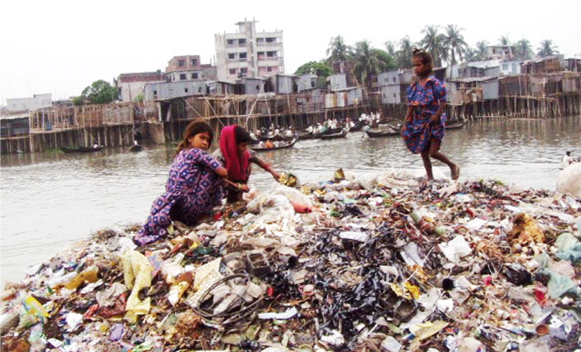
Menu
Menu

In Bangladesh, after its independence in 1971, rapid economic and population growth resulted in the deterioration of urban environment such as overflowing waste, air pollution, and water contamination. In 2000, Dhaka, the capital of Bangladesh with more than 12 million population, faced the most severe deterioration of the urban environment. Waste scattered around the city caused odor, wastewater, pests, clogged drainage and Cholera, and this became a big social issue. Therefore, the Japan International Cooperation Agency (JICA) has supported to improve solid waste management in Dhaka since 2000, and we have been engaged in Japanese Official Development Assistance (ODA) projects in Dhaka since 2003.
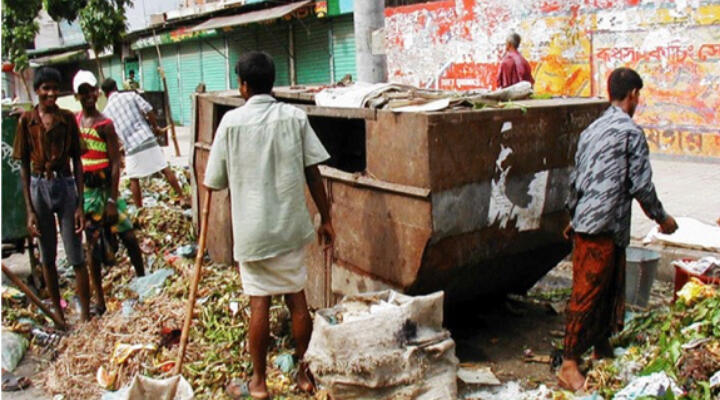
Situation of waste collection points around the city where waste has become scattered (waste containers and waste pickers)
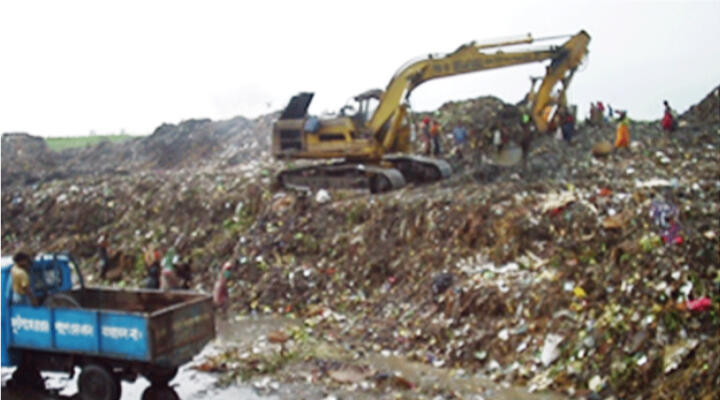
Dumping site in Dhaka before the improvement project (strong odor, flies, and overflow of leachate)
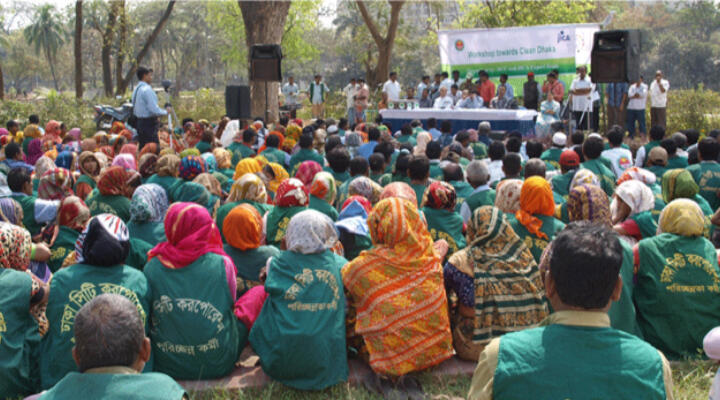
Safety and sanitation training for cleaners (around 9,000 cleaners work in Dhaka everyday)
To comprehensively solve the waste management issues in Dhaka City, we dispatched waste management experts in 2000, and have been engaged in various possible schemes and programs of JICA including dispatch of experts, development survey, Technical Cooperation (TC), Grant Aid (GA), Japan Debt Cancellation Fund (JDCF), and Japan Overseas Cooperation Volunteers (JOCV). In the study on solid waste management in Dhaka City (2003-2006), we formulated a Master Plan (MP) for SWM in Dhaka City with the target year of 2015, referred to as the “Clean Dhaka Master Plan (MP)”. The MP includes a plan for institutional capacity development (such as organization, finance, law and regulations, human resource management). Then, a series of projects and programs were launched to materialize and realize the MP.
The project for strengthening of solid waste management in Dhaka City (2007-2013) was implemented to improve the waste management system including waste collection and transportation, operation of landfill sites, establishment of new waste management organization, and promotion of community participation. A lot of JOCVs were dispatched from 2007 to 2015 and they promoted environmental education in collaboration with the technical cooperation project. In addition, waste-related infrastructure were developed through the JDCF (2005-2010), which was used for transformation of the existing landfills into sanitary landfills, grassroots cooperation (2006) for installation of medical waste incinerator, and GA (2009-2010) for procurement of waste collection vehicles. “Clean Dhaka” has been promoted by a synergistic effect of such soft components and hard components. They resulted in the establishment of a waste management department, increase of waste collection efficiency, introduction of sanitary landfills and raise of social awareness for sanitation and the capacity development of DCC for SWM in Dhaka.
Currently, a technical cooperation project is being undertaken and a MP for both Dhaka North City Corporation (DNCC) and Dhaka South City Corporation (DSCC) are being prepared. The new MP targets “Zero Waste”, which include waste reduction methods such as eco-town concept and 3R promotion. This project also targets Chattogram City Corporation (CCC), which is one of the biggest cities in Bangladesh, and good practice of Clean Dhaka is shared and spread to support improvement of waste management outside Dhaka. Waste collection vehicles were also procured for CCC by GA (2015-2018).
Through these continuous supports, the waste collection rate in Dhaka increased drastically from about 40% in 2000 up to about 85%, which is almost the same level as in developed countries. Moreover, the main issues and characteristics of waste management have changed in the last 20 years. At the beginning of the Project in 2000, we aimed to establish proper waste management system with appropriate waste collection and sanitary landfills. These days, we have supported a new stage of waste management to realize waste reduction, called as “Zero Waste”, through promotion of 2R (Reduce and Reuse) and recycling at the Eco-town (an intermediate treatment hub with various provisions of treatment facilities (waste-to-energy, biogas, composting, recycling etc.)) as a future vision.
(This article was written based on the information as of November 2019)
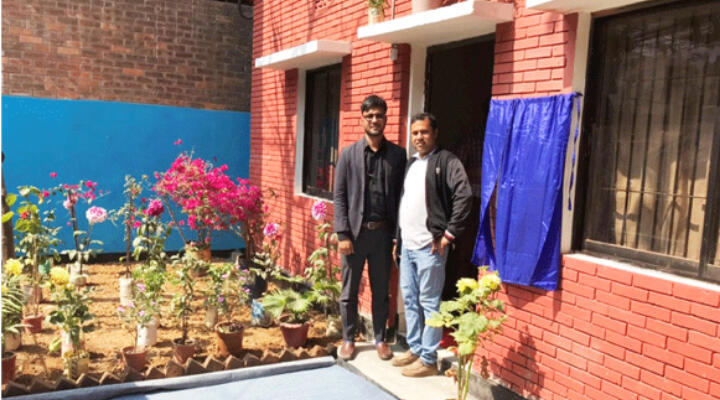
Construction of ward solid waste management offices, which have become centers of community-based waste management (Total of 49 offices in DNCC & DSCC)
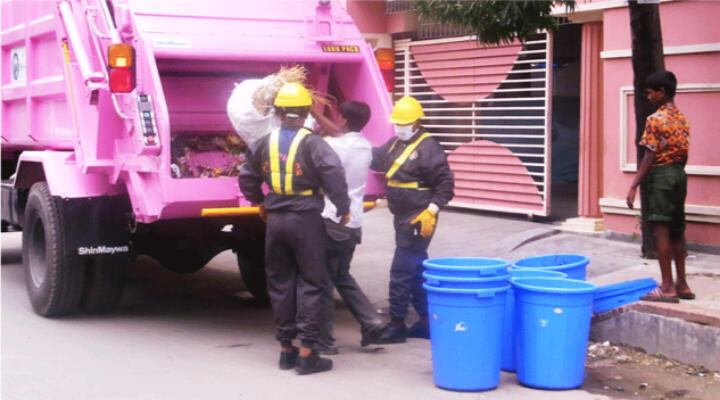
Introduction of fixed-time and fixed-place collection system utilizing compactor trucks procured via the Japanese Grant Aid Project
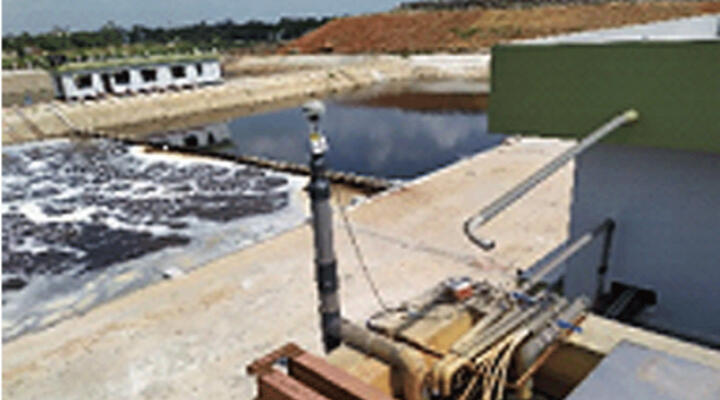
Leachate treatment facility at the current sanitary landfill site equipped with modern technologies supported by JICA
Project Details